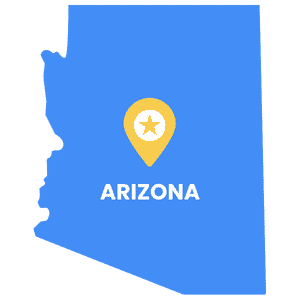Vermont State Information Page
Current Legality State – Vermont
Fully Legal
- Medical marijuana and recreational use are legalized.
- Decriminalized statewide for personal use
- Adult residents may possess one ounce of recreational cannabis; possession limits of up to two ounces for medical patients.
- Cultivation of up to six plants (two mature plants and four immature plants) per residence is allowed for recreational cannabis; up to nine plants (only four mature plants at once) for registered patients

Current Legality State
Fully Legal

- Medical marijuana and recreational use are legalized.
- Decriminalized statewide for personal use
- Adult residents may possess one ounce of recreational cannabis; possession limits of up to two ounces for medical patients.
- Cultivation of up to six plants (two mature plants and four immature plants) per residence is allowed for recreational cannabis; up to nine plants (only four mature plants at once) for registered patients
Medical Cannabis Savings
Taxes explained and the benefits of getting your medical card in Arizona
Recreational Marijuana Taxes in
20% (14% excise + 6% sales tax)
Medical Marijuana Taxes in Vermont
0%
Your cannabis AI assistant
Tailored recommendations for your favorite
Sign up below for early access
*By signing up, you agree to the Terms and Conditions and Privacy Policy.
California residents, see our CA Privacy Notice.
Is Cannabis Legal In Vermont ?
Marijuana has been legal recreationally for adult use in Vermont since 2018, and medical marijuana use has been legal since 2004. Medical cardholders and caregivers have been able to buy cannabis since 2011.
State Laws and Offenses
Here’s a list of penalties for Vermont possession, sale, and distribution of marijuana, concentrate, or paraphernalia.
- Marijuana is a Schedule I substance in the state of Vermont
- Federally, cannabis is still considered a Schedule I Controlled Substance.
- A Vermont resident may possess up to an ounce of cannabis for adult use
- The sale or delivery of less than half an ounce is a misdemeanor punishable by a maximum sentence of two years imprisonment and a maximum fine of 10,000 USD, or both.
- Possession of more than five grams of hashish is a misdemeanor punishable by six months imprisonment and a maximum fine of 500 USD for a first offense.
- Adults 21 and older may legally grow six plants at one time.
- The possession of marijuana paraphernalia by a person 21 years of age or older is punishable by a civil fine only — no arrest, no jail time, and no criminal record.
- Beginning January 1, 2021, new cannabis laws state that past marijuana convictions will be expunged and that residents will not have to acknowledge the existence of the criminal record so as not to negatively impact those who have previous cannabis convictions.
Vermont Qualifying Conditions For Medical Marijuana
Vermont allows patients with the following conditions to apply for a medical cannabis card:
- Any patient receiving hospice care
- Cachexia or wasting syndrome
- Cancer
- Crohn’s disease
- Glaucoma
- HIV or AIDS
- Multiple Sclerosis
- Parkinson’s disease
- Post-traumatic Stress Disorder
- Seizures
- Severe or chronic pain
- Severe nausea
How to get a medical marijuana card in Vermont
These are the steps to getting a medical marijuana card with the help of Leafy DOC
-
Book An Appointment
- You will schedule an appointment to see a medical marijuana doctor in Vermont at a time that is most convenient for you.
- Provide basic medical history and book your appointment with a licensed medical marijuana doctor.
-
Evaluation
- Consult with a doctor for a quick evaluation of your ailments, and ask any questions you may have about medical marijuana treatment.
-
Approval
- Within 24 hours after the evaluation, the doctor will send your certificate via email for your recommendation for medical marijuana.
- After receiving that recommendation, you can then apply with the state of Vermont to complete the registration process.

Book your appointment
- Easily make appointment online
- Skip unnecessary doctor office visits
- Provide basic medical history

Match with a Doctor
- Connect w/ the right doctor for you.
- Thorough evaluation via phone or video call.
- Provider will answer any questions.

Get your Medical Card
- Upon Approval you’ll receive confirmation email
- Receive a temporary card or card in the mail
- Enjoy the benefits of being a medical card holder!
Cannabis Policy Reform Timeline
1915: Cannabis use and possession were banned in Vermont due to federal prohibition
2004: Vermont legalized medical marijuana via Senate Bill 76 and established a cannabis control board
2007: Senate Bill 7 was passed to expand the medical program and qualifying conditions
2013: House Bill passed to decriminalize the possession of one ounce or less and eliminating penalties down to a civil infraction
2014: Governor Shumlin stated his support for a tax and regulate system for cannabis
2017: The Vermont State House voted to approve a ballot initiative to allow personal possession, use, and cultivation of cannabis but not commercial sales
2018: House Bill 511, an amended version of the 2017 cannabis laws, was passed. As recommended by the Governor’s marijuana advisory commission, Governor Phil Scott signed the law to legalize adult personal possession of one ounce of cannabis and allows individuals to cultivate two mature and four immature cannabis plants.
2022: Licensed dispensaries can begin to sell cannabis to adults in October thanks to legalization advocates for marijuana sales in the state.
Some of the Current Cannabis Bills in Vermont
- VT H0321 – An act relating to miscellaneous cannabis amendments
- VT H0189 – An act relating to funding support services for persons who use drugs and eliminating misdemeanor criminal penalties for possessing or dispensing a personal use drug supply








